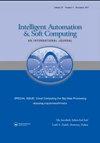基于深度学习的雨林物种探测智能音频信号处理
IF 2
4区 计算机科学
Q2 Computer Science
引用次数: 3
摘要
在热带雨林中听到一个物种比看到它们要容易得多。如果有人在森林里,他可能无法环顾四周,看到那里的每种鸟和青蛙,但可以听到它们的声音。护林员可能知道在这种情况下该怎么做,他/她可能是识别森林中不同类型昆虫和危险物种的专家,但如果一个普通人去热带雨林冒险,他甚至可能不知道如何识别这些物种,更不用说采取适当的行动了。在本工作中,建立了一个以音频信号为输入,进行智能信号处理以提取特征和模式,并输出音频信号中存在哪种类型的物种的模型。该模型端到端工作,可以处理原始输入,并且还创建了一个管道来执行原始输入的所有预处理步骤。在这项工作中,测试了基于长短期记忆(LSTM)和卷积神经网络(CNN)的不同类型的神经网络架构。两者都表现出可靠的性能,CNN的准确率为95.62%,Log Loss为0.21,而LSTM的准确率为93.12%,Log Loss为0.17。从这些结果可以看出,CNN在准确率方面优于LSTM,而LSTM在Log Loss方面优于CNN。此外,这两种模型相结合,实现了高精度和低Log Loss。LSTM和CNN的组合准确率为97.12%,Log Loss为0.16。本文章由计算机程序翻译,如有差异,请以英文原文为准。
Intelligent Audio Signal Processing for Detecting Rainforest Species Using Deep Learning
Hearing a species in a tropical rainforest is much easier than seeing them. If someone is in the forest, he might not be able to look around and see every type of bird and frog that are there but they can be heard. A forest ranger might know what to do in these situations and he/she might be an expert in recognizing the different type of insects and dangerous species that are out there in the forest but if a common person travels to a rain forest for an adventure, he might not even know how to recognize these species, let alone taking suitable action against them. In this work, a model is built that can take audio signal as input, perform intelligent signal processing for extracting features and patterns, and output which type of species is present in the audio signal. The model works end to end and can work on raw input and a pipeline is also created to perform all the preprocessing steps on the raw input. In this work, different types of neural network architectures based on Long Short Term Memory (LSTM) and Convolution Neural Network (CNN) are tested. Both are showing reliable performance, CNN shows an accuracy of 95.62% and Log Loss of 0.21 while LSTM shows an accuracy of 93.12% and Log Loss of 0.17. Based on these results, it is shown that CNN performs better than LSTM in terms of accuracy while LSTM performs better than CNN in terms of Log Loss. Further, both of these models are combined to achieve high accuracy and low Log Loss. A combination of both LSTM and CNN shows an accuracy of 97.12% and a Log Loss of 0.16.
求助全文
通过发布文献求助,成功后即可免费获取论文全文。
去求助
来源期刊

Intelligent Automation and Soft Computing
工程技术-计算机:人工智能
CiteScore
3.50
自引率
10.00%
发文量
429
审稿时长
10.8 months
期刊介绍:
An International Journal seeks to provide a common forum for the dissemination of accurate results about the world of intelligent automation, artificial intelligence, computer science, control, intelligent data science, modeling and systems engineering. It is intended that the articles published in the journal will encompass both the short and the long term effects of soft computing and other related fields such as robotics, control, computer, vision, speech recognition, pattern recognition, data mining, big data, data analytics, machine intelligence, cyber security and deep learning. It further hopes it will address the existing and emerging relationships between automation, systems engineering, system of systems engineering and soft computing. The journal will publish original and survey papers on artificial intelligence, intelligent automation and computer engineering with an emphasis on current and potential applications of soft computing. It will have a broad interest in all engineering disciplines, computer science, and related technological fields such as medicine, biology operations research, technology management, agriculture and information technology.
 求助内容:
求助内容: 应助结果提醒方式:
应助结果提醒方式:


